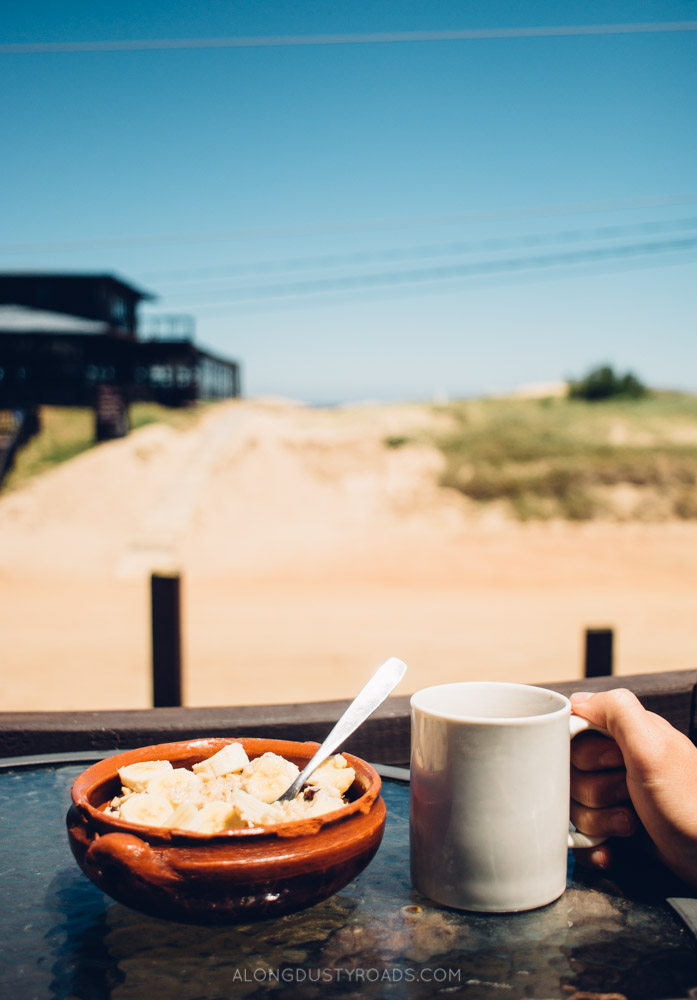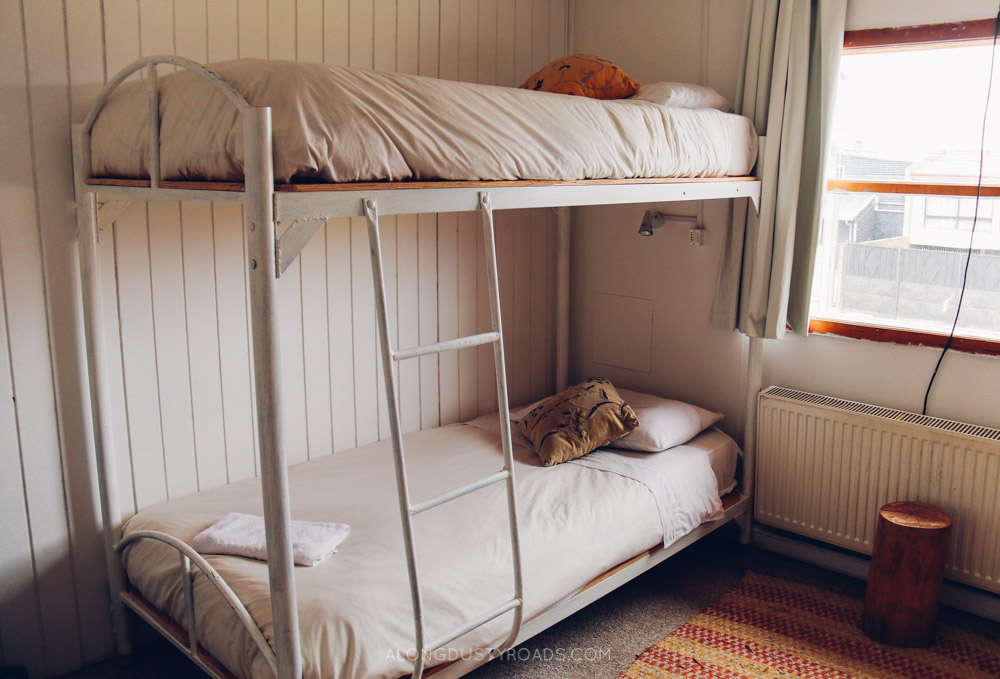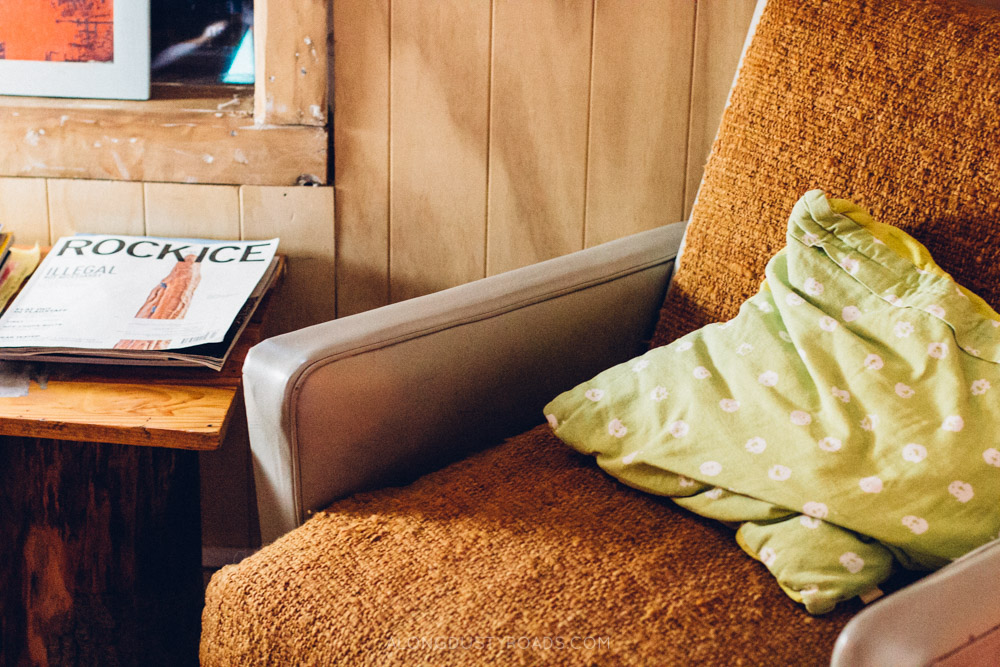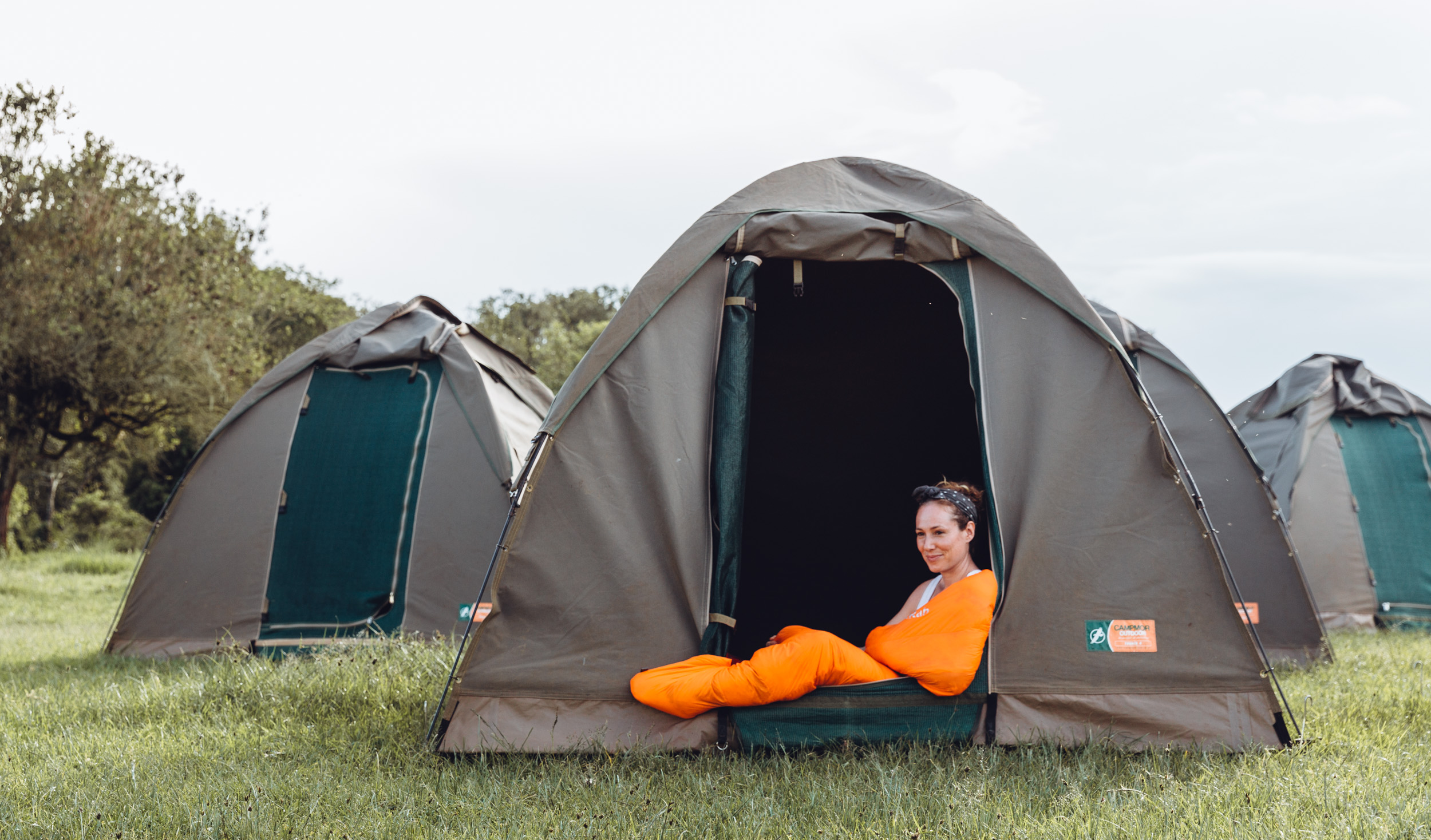Between us, we've stayed in literally hundreds of hostel beds over our years of travels - knowing how to pick a good one has become second nature!
Yet, we know that for some of you making your first big foray into the world of travel, the idea of having to share a dorm with others can be a little scary. And, for some seasoned travellers out there, you may have avoided hostels for a long time because of the reputation they used to have or one bad experience.
Well, the good news is that hostels have changed, and they are literally everywhere - even in the smallest of towns, there are usually several hostels to choose from. So, how do you pick the one that's right for you, when they're all claiming to be the best?
That's why we've put together this little guide, so that people like you, can get the best night's sleep - and hopefully make some travel buddies in the meantime!
Why hostels?
If you're young, travelling long-term or on a bit of a budget, chances you're going to become very accustomed to the backpackers' hostel. But, that's a good thing!
Firstly, they're cheap. Even in more expensive countries such as Western Europe, the US and Australia, just paying for a bunk instead of a hotel room is going to save you a lot of money. And that means you get to keep more of your hard earned cash for fun things like tours, the odd night out and the opportunity to eat more than instant noodles.
Secondly, they're a fantastic way to make friends. Even if you're travelling as part of a couple or with a buddy, take our word for it that sometimes you'll need alternative company. For solo-travellers, hostels will prove invaluable. Whilst backpacking on your own is liberating, there is no denying that sooner or later you're going to want a friend to hang out with, or a bunch of people to go play ridiculous drinking games with! Whilst it you may feel a little out of your comfort zone to begin with, hostels are a great way to improve your social skills, and force you to come out of your shell in ways you may not have had to in the past.
Thirdly, hostels are no longer rubbish. For years they've had a bit of negative or dodgy reputation but the majority have really upped their game. Some are incredibly well set-up, with design features, boutique-style private rooms and common areas which you won't actually want to leave. Sure, there will still be a few rotten apples, but hostels are no longer somewhere to avoid when looking at accommodation options.
types of hostels
Before you book a hostel, you need to be aware that not all hostels are created equal, and each caters to a very different backpacker.
The Party Hostel
Depending what you're looking for, the party hostel can be the best experience - or the worst. For those travelling on a gap year, who enjoy drunken nights out and value a social experience over all others, the party hostel may just be perfect. Often these places have an on-site bar, advertise pub crawls and are very popular with a younger crowd.
They're also notoriously loud, often prioritise the drinking experience over the cultural one and can make a good night's sleep before a big trip incredibly difficult.
Don't get us wrong, we've had many a great night in a party hostel, but we just know to pick when we want to be in one very carefully - usually when we've been in local run places for a long time, have missed speaking English and want a good night!
The budget choice
Our favourite.
And no, this doesn't mean crappy hostels with no facilities, dirty sheets and a rat infestation (we've stayed in those too - just don't do it!). For us, a budget hostel means somewhere that has all you need, but nothing more.
These are often filled with couples, long-term backpackers and older people and more local guests. They are a place of calm, where you can cook yourself a hearty (if not fancy) meal, enjoy a quiet beer with other guests and get a good nights sleep.
Because they're not wasting money on fancy paint jobs, free shots at happy hour and wide-screen TVs and movie rooms they can keep their prices low, which is great if you need to make your travel budget stretch that little bit further. And, sometimes, the lack of a crowd means you actually form a really strong, genuine bond with others staying there.
The flash-packers' choice
Many years ago, when we first started travelling, this third choice didn't really exist. Now, the boutique hostel has spread worldwide.
These places do not come cheap, but you can't deny you don't get your money's worth! Pools, excellent breakfasts, beautifully designed dorms and common areas, the fanciest of kitchens - some even have spas!
Want your mind blown? Check out these insanely beautiful boutique hostels in Europe!
As long term adventures require that you do keep an eye on where you spend your pennies, these really haven't been our go-to option. However, for the short European city breaks we have planned in the next 12 months these will be ideal, with many of the facilities we'd expect from a hotel, but at a fraction of the cost.
If you're super new to hostelling, don't enjoy the traditional hostel experience or a single female who would like a little extra security or peace of mind, a boutique hostel could be perfect.
Amenities to consider
Okay, so using the above, you've narrowed down your choice - but depending on where you're looking, you may still be left with quite a few hostels to choose from. The next sensible step is to narrow down based on the amenities that you need.
Lockers
Unless we're staying in a private room, the failure of a hostel to have personal lockers is a deal breaker for us - and it should be for you too. No matter how much you trust your room mates or the hostel staff when they say 'we've never had any problems with theft', not having somewhere that you can lock up your valuables is a dumb move. Even the lightest traveller will carry at least their passport, a small amount of cash and cards, camera and small electronics, and whilst you may well have a number of these items on you during the day, you need to know that they're secure when you're asleep or leave them behind.
We've heard several stories of things being taken from under pillows or their bedside whilst deep in slumber. Unfortunately, thefts do happen, and without taking precautions your travel insurance is next to useless in the event of a claim.
Wifi
Given the digital age that we live in, not having wifi is highly unusual. In fact, the only places we have stayed without it have either been in the depths of the rainforest, up the side of a mountain or the middle of the desert - the sort of place where it's kind of nice to detach from the internet and just enjoy being in the wild, disconnected.
However, for the rest of your trip, a decent wifi connection is essential. Whilst most hostels will state that they have wifi, this is a good point to check on the reviews. Previous guests are very good at venting their frustrations with crap internet!
Kitchen
Again, this is probably dependent upon budget and length of travels. If you're only on the road for a long-weekend or a couple of weeks, having somewhere to cook a decent meal is going to be far less important and eating out will likely feel like a treat.
For those travelling for months or even years at a time, a kitchen becomes much more essential. Even if it's not that well-stocked (we've stayed in plenty one fork, one spoon and one rusty saucepan with no handle type of places), you can usually manage to rustle up a plate of pasta.
Psssst! Plan on cooking on the road? Check out our secret to great hostel cooking here.
Laundry facilities
Depending where you are in the world, laundry bills can get pretty pricey, and so finding a hostel where you can do your own for a fraction of the cost might be quite useful at times. We've made decisions on hostels purely because they had a washing sink and a place to hang our wet clothes before, but a number do offer machines as well. Just make sure that it is a machine or washing sink that you can use yourself - lots of hostels operate a laundry service much like the one you would pay for when dropping your clothes into a launderette, but they often charge a premium. If this is the case with yours, do be sure to ask around as you may find a cheaper alternative just a few blocks from the hostel.
Bar
For us, having a bar is a double edged sword.
Of course, the hostels that do have an on-site bar naturally have a more social vibe, but it also means that you're usually not allowed to bring in your own booze. This might not bother you, but it often bothered us.
Sure, they usually provide drinks at a slightly lower cost than a local bar, but frustratingly, not that much cheaper - a night spent drinking with your new hostel buddies can certainly add up, especially if there's a tab system (beware the tab system - it's often used to the hostel's advantage, not yours)!
Stay somewhere where you can bring in your own drinks however, and you can play ring of fire for hours and spend very little!
How to find a hostel
Even now, after researching hundred of hostels, we still come across a website we've not heard of, offering up an easy way to book your next bed.
And yet, the way we find and select a hostel is always one of four tried and tested methods.
HostelWorld
There may be many like it, but we're pretty sure that HostelWorld provides the most comprehensive selection of hostels all over the world - and a really easy way to book.
Within it, you'll find the latest availability, up-to-date reviews, and a full list of amenities. When you book, you'll pay an upfront fee equivalent to 12.5% of the total booking. This acts as a deposit, and is subtracted from the total bill when you arrive at the hostel.
We use HostelWorld frequently, especially when we know we're going to be arriving late, it's our first night in a new place, when we're only staying somewhere for a night or two, or booking during high season.
The only downside is that if you cancel your booking, you lose your deposit, and if you fail to show up your first night, the accommodation will be automatically deducted from your account.
Booking.com
So, if we're so enamoured with Hostelworld, why do we have a second website to turn to? Well, the answer is two-fold.
Booking.com's major 'pro' is that no deposit needs to be put down to secure your reservation. In fact, across many properties on their books, you needn't even provide credit card details to make a booking. This is great if you're in the situation where you think you need a bed but aren't sure if you're plans are going to change - if you cancel (providing you do so more than 24 hours in advance), you won't lose any money.
Secondly, whilst Hostelworld is great for, well, hostels, it's selection of budget hotels is very minimal. By searching on Booking, we get to see ALL the budget accommodation in the area and has saved us money on several occasions.
Guidebooks
Emily's a Rough Guide fan, Andrew a Lonely Planet, but wherever we go, we'll have at least one of them. These are great when you arrive in a city (especially a large one) without a booking, and need to find somewhere ASAP. Although they cover a wide range of budgets and types of hostels, they'll only recommend ones the writer deems of a good standard.
The only downsides are that, one, pretty much everyone travels with the same guidebooks, meaning that there are lots of people doing the same thing and places may already be booked up, and two, the prices within the books go out of date pretty quickly, so don't be surprised if that super cheap room doesn't actually exist anymore!
Go for a wander
We've had blisters, sun burn and chronic backache to attest to the fact that we've used this method a lot.
And, it's saved us a lot of money and allowed us to discover a few gems that we wouldn't necessarily have discovered without it!
Not something we'd recommend if you're off on a short trip (nobody wants to spend a couple of hours on a week long trip looking for a suitable bed), but if you plan on being in town for a while, taking the time to check out a few places, in person, before you make your decision is, in our opinion, essential.
You'll find that hosel owners are much more likely to give you a special deal (weekly discounts are a good one) once they meet you in person, especially if they know that once you leave you're off to see their competition down the road. And it allows you the opportunity to have a good look at the place and your prospective room in advance, so you can make double sure the reality matches the pictures!
Of course, this only works in small towns, where hostels are clustered around a specific area. We like looking for a good deal, but we're not masochists and even the most budget minded should draw the line at traipsing around a city for more than hour to save a few dollars! Lastly, only spend time searching in daylight hours and in safe neighbourhoods - that extra pound or two saved is not always worth the risk.
Other things to consider
So, you've established what type of hostel you want, what amenities you need and have started looking on HostelWorld or searching through your guide book - what else do you need to consider?
Location
Dependent upon your travel style, this may actually be the most important things to consider when picking a hostel.
Are you only in the city for a couple of days and want to be close to all the major tourist spots? Is being in a hip neighbourhood, surrounded by cool bars and funky coffee shops important to you? Do you need to stay somewhere that is easy to reach from the airport? Do you want to be in a more residential area and get more of a local feel than in the traditional backpacker area? Is it important to be somewhere you can safely walk around at night by yourself?
These are all things you need to consider before you book that hostel. It could have everything else you want, but if you need to get expensive public transport into the centre every day, cabs back from a night out or feel unsafe walking to and from the hostel by yourself, it's probably not the best choice for you.
Thankfully, when searching online, you have the option to view available hostels on a map rather than a list once you've typed in your dates.
If you see an outlier that's really cheap, just remember that it's often really cheap for a reason - make sure you do your research properly, especially if you're travelling by yourself.
Once you've made your choice and booking, it's a good idea to take a note of the address offline (or star it in a saved google map) and have a rough idea of how to reach it from the bus terminal / airport you'll be arriving from. If it's not entirely clear, or you want to avoid getting shafted by a taxi driver, then most hostels will be happy to reply to an e-mail asking for advice on directions, travel times and costs.
Check the reviews - lots of them!
Unless we're seeing a hostel before we agree to part with our cash, we're pretty obsessive about checking reviews. On multiple sources, not just the hostel booking site.
Whilst it is undeniable that TripAdvisor plays host to a lot of complainers, and reviews can often be skewed to the negative, we would recommend checking it out before making a reservation. Hostels aren't going to let you know if they've had a string of thefts, a recent bedbug infestation or if their staff are downright rude, but someone on TripAdvisor will.
Even the best hostels in the world will have a couple of bad reviews if you look hard enough, but if you notice a recurring theme, do take it seriously, especially if the complaints are coming from people with a lot of reviews to their name and who don't sound like the sort of traveller with ludicrously high expectations.
Top tip? If a hostel has multiple gleaming reviews from 'guests' that have only reviewed one property, take it with a grain of salt - it is a well known fact that unscrupulous hostel owners will leave fake reviews under fake names, in particular addressing a previous guest's bad experience. Just something to bear in mind...
Room type
We know that one of the big things that put off a number of would-be hostel users, is the prospect of sharing your room with multiple other people. We get it, as we've gotten older, we're not huge fans of massive dorms either, preferring to have our own space.
This doesn't mean however, that we shun hostels entirely - simply, we often opt for privates. Even in the fanciest of hostels, a private room is often significantly cheaper than a hotel, and you get all the social benefits of staying with other travellers.
For those new to this hostel lark, but on a small budget, we'd recommend booking a bed in a small dorm. Searching through various hostel listings, it won't take you long to come across super hostels with huge dorms - we've seen some with up to 20 beds. Personally, this is our idea of hell, and unless we are really concerned about our finances, it not something we'd ever opt for. Instead, we prefer to look for smaller dorms, around 4-6 people. You get the added benefit of a cheaper bed for the night, without the smell of 20 pairs of smelly feet!
Girls travelling on their own will be pleased to know that most hostels also provide female only dorms, usually with their own bathroom.
Know the check-in and check-out times
Although not a deal breaker, check-in and check-out times are definitely something you should clarify before making your reservation - especially if you are arriving or leaving your destination either very early or very late.
As a general rule of thumb, check-in will be somewhere between 12 and 2 p.m, although we have encountered many lovely hostel staff that, upon us staggering in at 6 a.m. after a particularly brutal night bus, have provided a free breakfast and early access to our bed. Unfortunately however, the opposite also exists and several less friendly establishments have made us wait in the lobby until 2 p.m. even when the bed was vacant.
Check-out times however are usually strictly observed and can range from 10 a.m. to 12 p.m. If you have a night bus to catch, or need to mooch around for a few hours before your onward travel connection, then most hostels will be pretty flexible about this and allow you to use the facilities after check-out; those who won't usually have a sign up stating it. If you know that this is going to be the case for you, it's worth asking if they have a secure baggage storage room - don't ever leave your valuables bag in there though.
Tried and tested hostel survival tips!
Whatever type of hostel you choose to lay your head down in, there are a few things that will make any stay more enjoyable - take it from us, we've tried everything!
Ear plugs - even if you're staying in a nice quiet hostel, there is no accounting for heavy snorers, early risers and late arrivals. If you're used to sleeping in your own room, the slightest bit of noise can make getting to sleep a little more tricky, that's why we never pick a dorm without making sure we've got our ear plugs with us! A few hostels have even started supplying them to guests free of charge. These are our favourites.
Your own towel - sure, a few of the nicer hostels will give you your own towel when you check in (especially if you're staying in a private), but it's not a given. Don't be stung by rental charges by investing in your own travel towel. They may not be the fluffiest you've ever had, but they take up barely any space and are super quick drying. They're also excellent for creating a bit of extra privacy if you're on the bottom bunk - simply drape over the frame and you've got your very own curtain! We both use this one from Mountain Warehouse - it's extra large and excellent value.
Head lamp - we never travel without a head lamp, and whilst the initial purchase was for camping and early morning hikes, they've actually come in most useful for reading in hostel dorms once the light's gone out or packing up our stuff in the morning so as not to wake up our dorm mates. We both use the same Petzl headlamp (bought by family before we went to Latin America - and they're still going strong!) and it's a brand we'll go back to in the future.
A pair of flip flops - an essential, even if you're going skiing! Why you ask? Well, have you ever seen a hostel bathroom? Even those that are cleaned regularly aren't really somewhere we want to venture in to barefoot. You'd think that people wouldn't pee in them, but you never know...
A tupperware box - not necessarily an essential for short-term travellers, but for those on the road for a while, it's really useful to have some way of storing leftovers other than in one of the few bowls that your less than adequate hostel supplies (and can make it into your own portable spice box too).
A reusable canvas bag - if you plan on staying somewhere you can cook, this will prove invaluable for shopping trips to the market - better for the environment too!
A pack of cards - whether you want a quiet game of Gin Rummy between friends, or an epic game of Ring of Fire to make new ones, carrying a pack of playing cards will never be something you regret.
For more hostel essentials, check out our ultimate hostel packing list - stock up these and you're good to go.
Or, if you're looking for a more tongue in cheek look at how to survive the great big hostel adventure, and some basics on hostel etiquette, be sure to check out our post on how not to be a hostel dickhead!
So, there you have it! Our epic guide to beginning your hostel experience.
In all honestly, even if you're not sure that hostels are for you, we urge you to give them a go. Some of the best people we've met on the road have been in hostels, and we've become friends with people we still call mates because of fantastic evenings spent sharing bottles of cheap rum, cooking in the kitchen together, sharing tips and travel stories and just using a hostel as a home, even if it's only just for a few nights.
Go on, have an adventure.






































